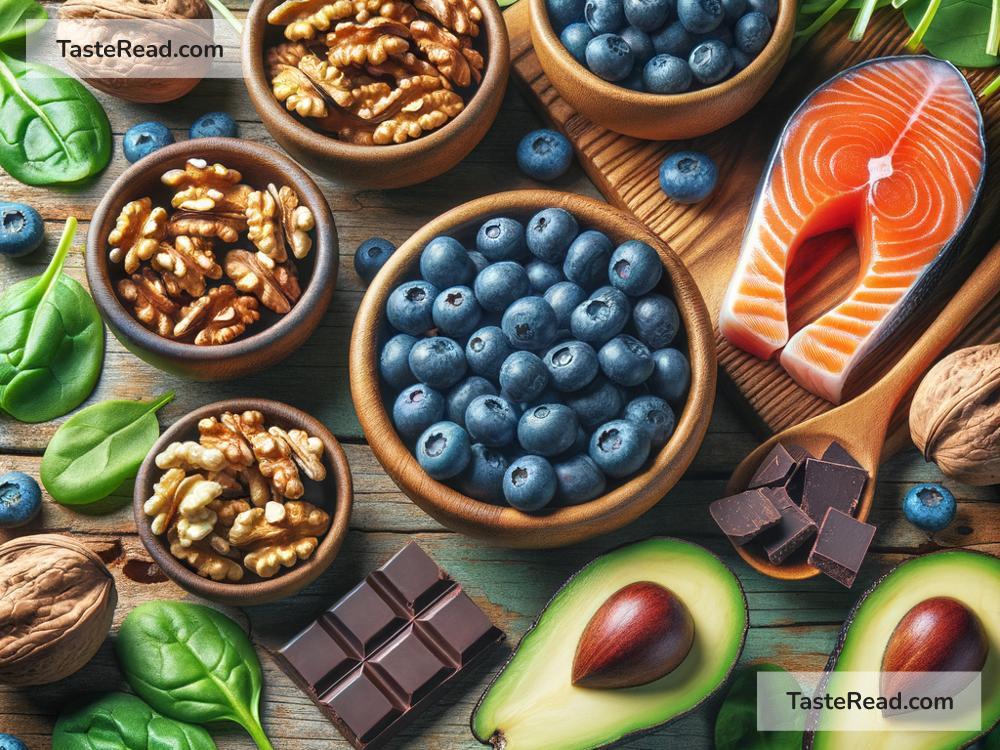Foods to Help Reduce Forgetfulness: Boosting Brain Health Naturally
Have you ever walked into a room and forgotten why you were there? Or struggled to recall someone’s name? Forgetfulness can be frustrating, but the good news is that certain foods can help keep your brain healthy and improve your memory. By making smart choices about what you eat, you can fuel your mind and sharpen your focus.
In this article, we’ll explore some everyday foods that are scientifically proven to support brain health and reduce forgetfulness. Let’s dive in!
Why Does Forgetfulness Happen?
Before we look at the best foods for your brain, it’s helpful to understand why forgetfulness occurs. Forgetfulness can happen for many reasons, including:
- Lack of sleep or rest
- Stress and anxiety
- Aging
- Poor diet lacking nutrients
- Dehydration
- Medical conditions, such as dementia
While some causes are unavoidable, like aging, many lifestyle factors—particularly diet—play a big role in memory and brain function. By eating certain foods, you can provide your body with nutrients that improve focus, support brain cells, and even lower the risk of memory loss as you age.
Brain-Friendly Foods You Should Eat
Here are some foods packed with nutrients that can help reduce forgetfulness:
1. Leafy Greens
Spinach, kale, broccoli, and other leafy greens are rich in vitamins like vitamin K, folate, and antioxidants that protect your brain. These nutrients help reduce inflammation in the brain, and research shows that eating greens regularly might slow cognitive decline.
How to Enjoy Them: Add spinach to smoothies, make a fresh kale salad, or stir broccoli into a quick veggie stir-fry.
2. Fatty Fish
Salmon, trout, mackerel, and sardines are excellent sources of omega-3 fatty acids, which are essential for brain health. Omega-3s help build brain cells, improve communication between neurons, and reduce the risk of Alzheimer’s disease. A lack of omega-3s in your diet may lead to forgetfulness or difficulty concentrating.
How to Enjoy Them: Grill salmon for dinner, make tuna salad with olive oil, or try sardines on whole-grain crackers for a healthy snack.
3. Nuts and Seeds
Walnuts, almonds, sunflower seeds, and flaxseeds are small but mighty foods for your brain. These are packed with vitamin E, which protects brain cells and improves memory. Studies suggest that walnuts, in particular, can boost mental clarity and overall brain function.
How to Enjoy Them: Snack on a handful of nuts, sprinkle seeds on your oatmeal, or mix them into your yogurt for a crunchy topping.
4. Berries
Blueberries, strawberries, blackberries, and raspberries are known as “superfoods” for the brain. These colorful fruits contain antioxidants called flavonoids, which fight off harmful free radicals and keep your brain sharp. Berries also improve communication between brain cells and may help delay age-related memory decline.
How to Enjoy Them: Blend blueberries into a smoothie, snack on fresh strawberries, or add raspberries to your cereal.
5. Whole Grains
Whole grains like oats, quinoa, brown rice, and whole-wheat bread provide a steady stream of energy for your brain. They are rich in fiber, which supports a healthy heart and improves circulation, including blood flow to the brain. Better blood flow means your brain gets more oxygen, which boosts memory and focus.
How to Enjoy Them: Start your day with oatmeal, make quinoa salads, or swap white bread for whole-grain bread in your sandwiches.
6. Eggs
Eggs are affordable and incredibly nutritious. They contain choline, a nutrient that helps create neurotransmitters – the chemicals that power your brain’s communication system. Eating eggs can improve memory and learning ability. They’re also rich in other nutrients like B vitamins, which support brain health.
How to Enjoy Them: Boil eggs for a quick snack, scramble them for breakfast, or whip up an omelet packed with veggies.
7. Dark Chocolate
Good news for chocolate lovers! Dark chocolate (with at least 70% cocoa) is full of antioxidants and flavonoids that enhance brain health. Eating small amounts of dark chocolate can boost your mood, improve focus, and even enhance memory.
How to Enjoy It: Munch on a square of dark chocolate when you need a pick-me-up, or mix cocoa powder into your smoothies or desserts.
8. Avocados
Avocados are rich in healthy fats that benefit your brain. They also help regulate blood pressure, which is essential for good brain function. Healthy fats reduce inflammation and support brain cell health, which can improve memory and cognitive ability.
How to Enjoy Them: Add sliced avocado to your toast, make guacamole, or toss it into a fresh salad.
Stay Hydrated with Water
While food is vital for brain health, don’t forget about water. Dehydration can make you feel sluggish and forgetful. Drinking enough water daily keeps your brain functioning at its best. If plain water feels boring, add lemon or cucumber slices for a refreshing twist.
A Balanced Approach to Brain Health
No single food is a magic cure for forgetfulness, but eating a healthy, balanced diet can make a big difference. Combine these brain-friendly foods with other good habits:
- Get enough sleep
- Stay physically active
- Manage stress
- Challenge your brain with puzzles, reading, or learning new skills
By taking care of your body and mind, including eating the right foods, you can reduce forgetfulness and keep your brain sharp as you age.
Final Thoughts
Forgetfulness is a common problem, but you don’t have to accept it as part of life. Simple changes to your diet can improve your memory and keep your mind in tip-top shape. So, next time you’re grocery shopping, make sure to pick up some leafy greens, fatty fish, berries, nuts, and whole grains. Pair these foods with healthy lifestyle habits, and you’ll feel more focused and alert in no time.
Your brain deserves the best—nourish it well and enjoy a life full of clearer thinking and better recall!


